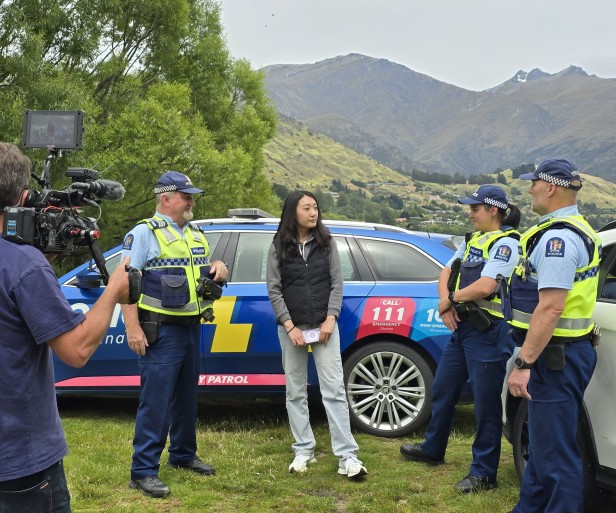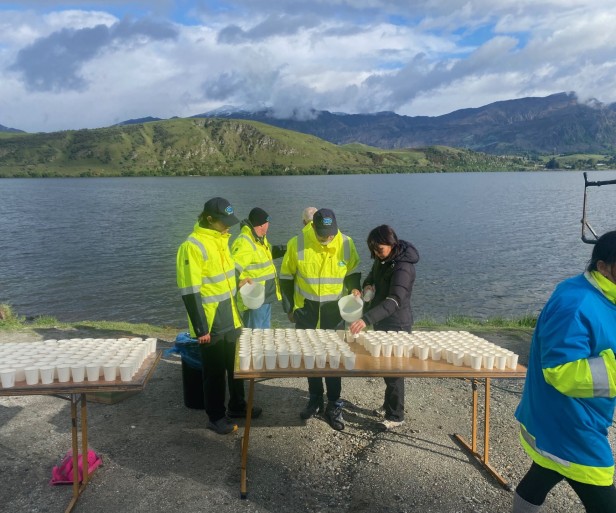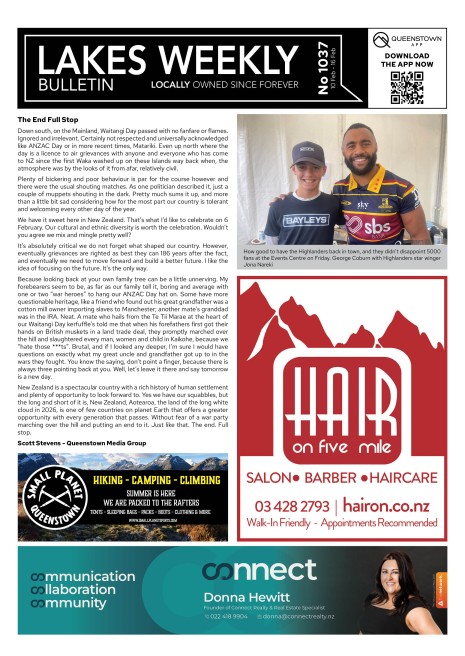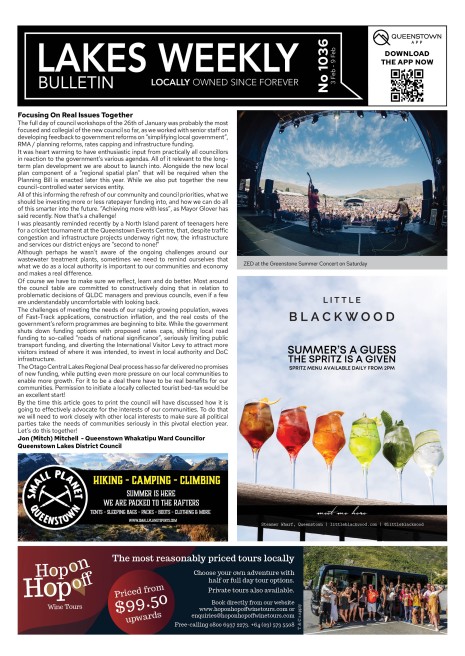Warning after smoky burn-off
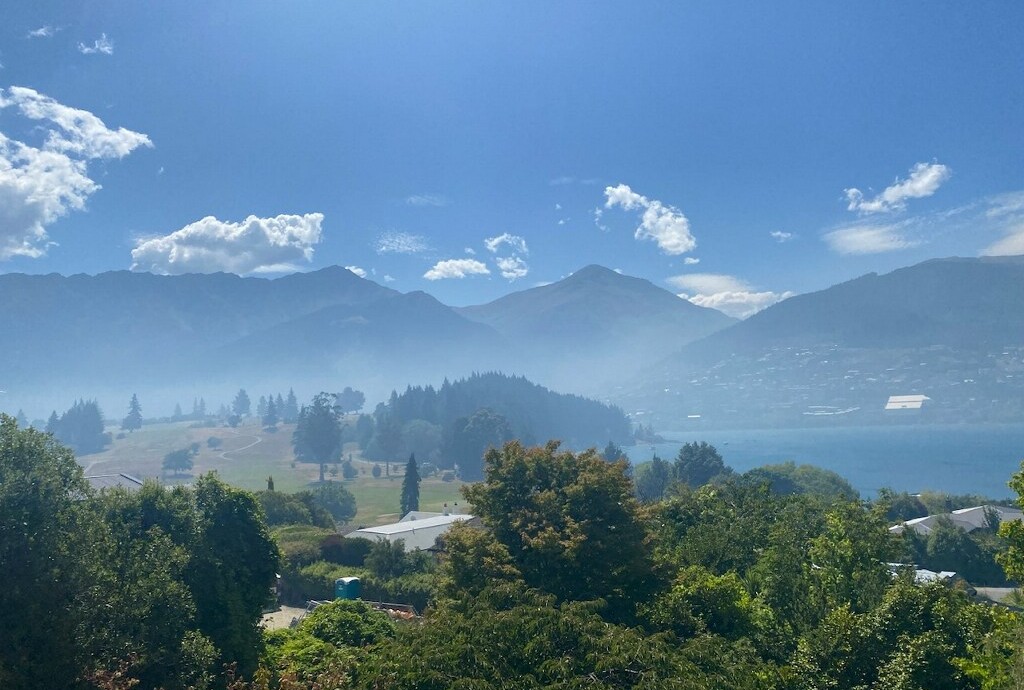
Two rural fires in Otago and Southland yesterday have prompted a warning from the regional council.
Six people called Otago Regional Council's Pollution Hotline yesterday to complain after smoke from a burn-off at Greenvale Station, near Kingston, spread on the wind and blanketed parts of Queenstown.
Queenstown Lakes is in restricted fire season, meaning all outdoor fires need a permit and fireworks are banned. But Southland, where the station is located, is not and although FENZ attended the fire, it was deemed a legal controlled burn-off and no further action was taken.
A second vegetation fire across about 2ha at Mount Pisa between Wānaka and Cromwell, was also attended by FENZ and extinguished. The cause is unknown.
ORC’s Manager Compliance Carlo Bell says despite the cool climate in coastal Otago in recent weeks, many parts of inland Otago are in fact tinder dry at present and pose a heightened fire risk.
He's reminding rural and peri-urban communities to prepare carefully for any intended burn-offs.
“Because Otago is very dry in many places, the ORC is urging people to check weather forecasts and take great care around any permitted or lawful property burn-offs they are intending,” he says.
People need to check the fire season status for their part of Otago and have any permits from FENZ as well as meeting ORC's rules.
Central Otago and Upper Waitaki zones in Otago are also under a restricted fire season until further notice since 16 December, so no burning is permitted in these areas currently.
Fires are also restricted year-round in Queenstown's red zone.
Bell highlighted the MetService forecast for Central Otago for the next week had only a few isolated showers forecast, so dry conditions would likely persist.
“This should remind people to be extra careful around all outdoor fires, be it burn-offs or smaller outdoor fires, and when using machinery in dry areas, such as mowers or farm machinery,” he says.
“We’re urging people to go through the following list as they formulate plans,” he says.
Better burning
- If burning permitted material is your only option, you should reduce smoke and burn safely and considerately
- Burn as far from your property boundary as possible
- Check that the wind is predicted to be away from built-up areas for the duration of the fire
- Postpone the lighting of your fire if there's already smoke from other fires in the air
- Make smaller fires
- Use dry fuel and stack it loosely
- Don't let the fire smoulder
- Avoid burning in the early morning or late afternoon/evening (breezier daytime conditions help to disperse the smoke)
- Avoid burning when there is an inversion layer
- Be prepared to put the fire out if conditions change or you discover that you are causing a nuisance
- Ensure burning on the property is permitted under the Air Plan
- Check the fire season status and have FENZ permission as neede
The three different types of outdoor burning
- Industrial burning
- Backyard fire
- Vegetation/forestry burn off
Complying
- An outdoor fire – such as a brazier, a controlled rural burn-off, or a hangi – must comply with Otago Air Plan rules
- Having a permit from Fire and Emergency NZ does not necessarily mean your burning is permitted under Otago Air Plan rules
- Fire and Emergency New Zealand sets fire seasons, tracks daily fire danger, and issues permits to burn
- Their rules depend on what kind of fire you have and whether it's an open, restricted or prohibited season. Before you light a fire, check your plan at checkitsalright.nz and get a permit if you need one. You must also follow the Otago Air
- Plan rules for what you can burn and where the fire is
Ok to burn
- Untreated wood
- Paper
- Cardboard
- Vegetation (must not be green)
What not to burn. Burning these kinds of materials can release harmful toxins into the air.
- Treated wood
- Off cuts from building sites (avoid treated wood, wood with nails, glue or other contaminants)
- Old decking
- Rubbish
- Green waste
- Plastic
- Clothes
- Electronics
- Disposable nappies
FENZ website www.checkitsalright.nz
Further ORC burning information, visit www.orc.govt.nz/environment/air-care/outdoor-burning/
If people observe pollution to water, air, or land in Otago, call the ORC’s Pollution Hotline which is staffed 24/7 on 0800 800 033 to report it.



